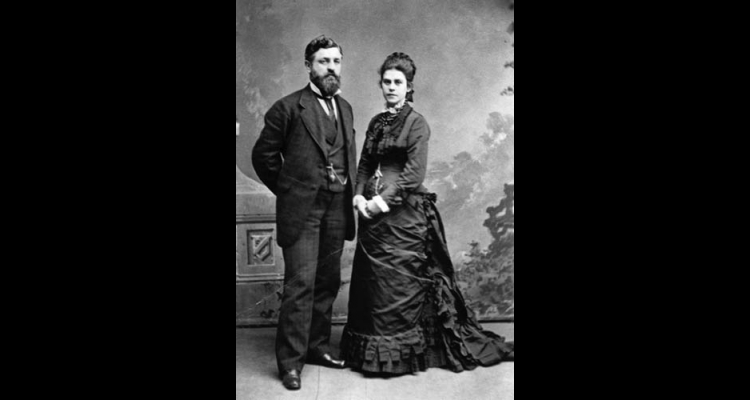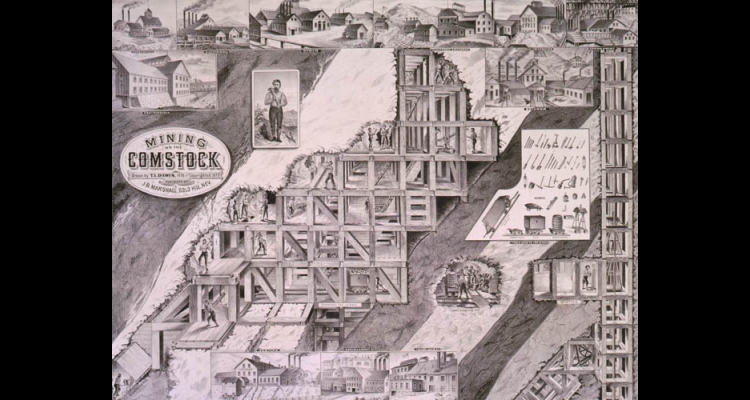Philipp Deidesheimer
Philipp Deidesheimer, the Comstock inventor of the square-set timber system, made deep hardrock mining a possibility throughout the world, thereby becoming a respected mining engineer. Deidesheimer was born to Jewish parents in Darmstadt, Hesse in 1832 before German unification. He attended the prestigious Freiburg School of Mines. At nineteen, the young mining engineer traveled to the California gold fields to work for several years. Eventually, he addressed one of the Comstock's most critical needs.
By 1860, miners found the Comstock Lode was dozens of feet wide in some places making it impossible for timbers to support caverns cleared of gold and silver ore. Seeking a solution, Ophir Mine director W. F. Babcock summoned Deidesheimer to Virginia City. The engineer arrived in November 1860. After about a month, he developed the famed square-set timber method.
With thick timbers of regular dimensions, carpenters could assemble Deidesheimer's series of cubes in any direction to support every underground situation. Unfortunately, he failed to patent his invention, and other mines adopted the system without payment. Deidesheimer's square-set timbers became an international standard for the next fifty years.
Because Deidesheimer's name commanded respect, mines quickly employed him. Unprofitable properties exploited his credibility to boost stock prices, and ultimately, he failed economically. He eventually relocated to Sierra City, California, where he continued as a mine supervisor. Deidesheimer died in 1916.
Article Locations
Related Articles
None at this time.


